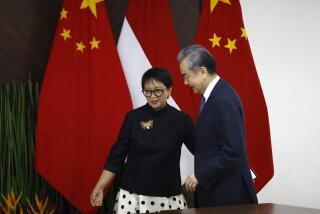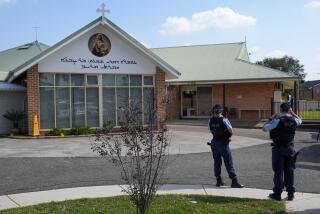The prohibition of ivory sales, a divise topic for African countries
The 17th Convention on International Trade in Endangered Species opened Monday in Johannesburg with a divisive debate on a proposed ban on domestic ivory trade as a measure against illegal poaching.
The Unites States and a group of 10 African countries, including Kenya, Angola and Ethiopia, petitioned for the prohibition of domestic ivory trade in all of the nations present at the CITES meeting but met opposition in the shape of Namibia.
The southern African country tried to halt the mandate against domestic ivory trade and limit the mandate to an international level, but its objection was rejected too, and the proposal is to be revised.
The supporters of a domestic ivory market ban argue that ivory that is sold locally is easily transported across borders where it enters the international market.
Representative for the International Fund for Animal Welfare Satyen Sinha told EFE that the domestic markets are a huge loophole in international regulations.
The alliance of African governments that advocate for the outright ban on ivory sales and restrictions on the trade and hunting of elephants have come up against Namibia and Zimbabwe.
These two countries, in turn, possess 22 percent of the population of African elephants, and put forth a proposal that would permit them to auction off their reserve stocks of ivory and to sell the tusks of some of their living specimens.
The two countries’ representatives argued that the decriminalization of ivory trade would legally satisfy demand for the product and that profits from the trade could be invested in the conservation of the species.
Activists from various NGOs, such as the World Wildlife Fund reject such arguments and warned of the possibility that poachers could use their system to their advantage.
IFAW director Azzedine Downes told EFE that when there is a legal market, there is always an illegal one.
Downes advocated that the rules be drawn out in black and white, so that security personnel do not have to deal with nuanced variations and exceptions in regulation.
A document present in Johannesburg on Sunday said that the population of African elephants had suffered its biggest fall in the last 25 years.
In 2015 there were around 415,000 elephants left in the wild in Africa, 111,000 thousand less than in 2006.
Over the years, the convention has been the scene for a host of parties representing different interests and ideas on how to ensure that the international trade of wildlife specimens does not negatively impact on wild populations.
This month the International Union for the Conservation of Nature urged all governments to close their domestic ivory markets.
Many countries have banned the sale of ivory in their territories in recent years, with a few retaining the legal trade of objects made from elephant tusks dating back to over a certain number of years.
Such exceptions are often exploited by traffickers, who introduce poached ivory into the market on false pretenses.
The convention is due to run until Oct. 5.








